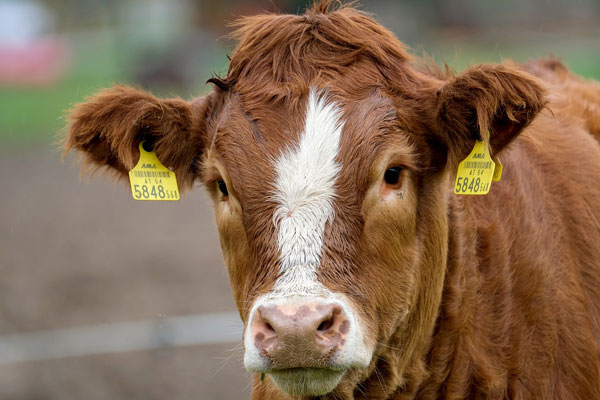Denmark introduces the world’s first livestock carbon tax

[A cow. Photo credit to pixabay]
Denmark announced a groundbreaking policy by becoming the first country to impose a carbon tax on the emissions of livestock, which is set to begin in 2030.
This pioneering move targets greenhouse gases produced by the nation’s livestock– cows, pigs, and sheep– in an effort to reduce Denmark’s overall carbon footprint and inspire similar actions worldwide.
Starting in 2030, Danish livestock farmers will be required to pay approximately $43 per metric ton of carbon dioxide equivalent (CO2e) emissions.
The effective cost to farmers is predicted to start at $17 per metric ton in 2023, gradually rising to $43 by 2035.
The Danish government hopes the tax will reduce carbon emissions by about 1.8 million metric tons in the first year of implementation.
The Danish government enthusiastically strategizes to cut greenhouse gas emissions by 70% from 1990 levels by 2030 and to achieve climate neutrality by 2045.
One of the primary targets of this tax is methane, a greenhouse gas emitted through livestock digestion and manure management.
Methane traps approximately 87 times more heat than carbon dioxide over a 20-year timescale, underscoring the importance of taking action to mitigate these problems.
Livestock accounts for about 32% of human-caused methane emissions globally, with cattle being the main contributors.
The agreement for this livestock emissions tax was reached after five months of rigorous negotiations between Denmark’s government and various stakeholders from farmers to industry representatives.
Danish Tax Minister Jeppe Bruus lauded the policy as a global first, as he stated, "We will be the first country in the world to introduce a real [carbon dioxide equivalent tax] on agriculture. Other countries will be inspired by it."
He further elaborated, “The agreement shows how much we can achieve when we come together across party colors and interests to find joint solutions to one of the greatest challenges of our time.”
While the policy has been widely praised for its ambitious goals, it also inevitably faced criticism, particularly from the agriculture community.
There have been active protests across Europe by farmers who oppose the new regulations, arguing that these measures threaten their livelihoods.
Despite opposition, many environmental organizations, such as the Danish Society for Nature Conservation, emphasized the importance of this policy for a sustainable future.
Maria Reumert Gjerding, head of the organization, called the tax agreement a "historic compromise" that lays the groundwork for a restructured food industry that can thrive sustainably beyond 2030.
In addition to the emissions tax, the Danish government has committed to a substantial amount of environmental investments.
They have allocated €5.3 billion to reforest 250,000 hectares of farmland by 2045, and also plan to buy out certain farms to reduce nitrogen emissions across the country.
Denmark’s introduction to the world’s first livestock emissions tax a significant step in the fight against climate change.
The success of this policy could possibly encourage countries worldwide to adopt similar measures, contributing to the global reduction of greenhouse gas emissions.
By targeting one of the most potent sources of greenhouse gases, this policy not only aims to mitigate negative climate effects in Denmark but also sets an inspiring example globally.
As nations around the world begin to search for effective strategies to combat global warming, Denmark’s pioneering efforts offer a promising blueprint for integrating environmental sustainability into agricultural policy.

- Jiyu Sohn / Grade 10
- St.Johnsbury Academy Jeju

![THE HERALD STUDENT REPORTERS [US]](/assets/images/logo_student_us.png)
![THE HERALD STUDENT REPORTERS [Canada]](/assets/images/logo_student_ca.png)
